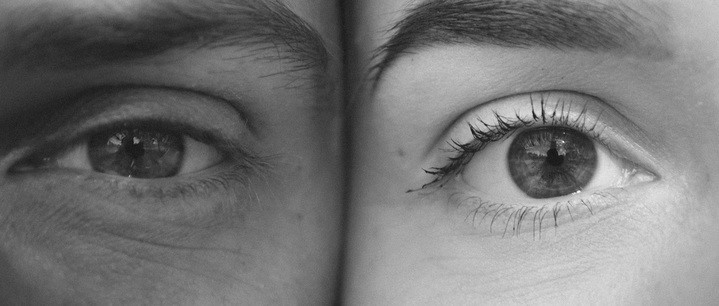
What your dreams can reveal about your health
Peer reviewed by Dr Sarah Jarvis MBE, FRCGPLast updated by Sally TurnerLast updated 2 Aug 2018
Meets Patient’s editorial guidelines
- DownloadDownload
- Share
- Language
- Discussion
Dreaming is crucial to normal brain function, but certain sleep and dream behaviours may be an indicator of underlying health issues. We examine what your dream patterns may reveal about your health and well-being.
In this article:
Video picks for Sleep and insomnia
Most of us will spend around six years of our lives dreaming, yet on average 95% of our dreams are forgotten soon after waking.
One theory suggests this is because the brain's frontal lobe is inactive during dream sleep and this part of the brain is where memories are processed and stored.
Normally during dream sleep we become temporarily paralysed - the only muscles that remain active are the ones that allow us to breathe and those which control our eyes, hence the term 'rapid eye movement' (REM) sleep. On average we will have three to five cycles of REM sleep every night and usually only remember our dreams if we wake during one of these.
Continue reading below
Why do we dream?
From a neurological perspective, there are many theories as to why dreaming is crucial to the sleep process.
GP Dr Pixie McKenna, spokesperson for Dreams, comments: "Studies have shown that dreams are linked to learning and repair, and consolidating the experiences, skills and encounters we have had during the previous days."
Dr Guy Leschziner, consultant neurologist at the Sleep Centre, London Bridge Hospital, part of HCA UK, is in agreement and adds, "it's about refining the deposition of memories."
The scope of 'normal' dream behaviour is surprisingly broad. As well as being driven by individual psychological and physical components, our dreams may even be influenced by social and cultural factors.
For example, one study has demonstrated that before colour television was introduced, only 15% of people dreamt in colour; the findings showed that older people were likely to dream in black and white more often than the younger generation.
However, there are certain changes in sleep and dream behaviours that are worth noting, which may indicate an underlying health concern.
Causes of nightmares and abnormal dream behaviour
Back to contentsLifestyle factors
"People who are jet-lagged or incredibly tired will notice that they dream just before sleep has started or just as they are waking. If this happens to you, it's a clue that you are sleep deprived," says McKenna. "Unusual dreams can be indicative of anything from pregnancy to low blood sugar levels. Nightmares are often related to stress, anxiety, and negative experiences, or are also a sign of sleep deprivation."
Alcohol, overeating, stress and over-exertion (mental or physical) prior to sleeping can also be triggers for disrupted sleep and disturbing dreams.
Medication side-effects
Some common drugs can disrupt REM sleep and the dream cycle.
"Typically these include anti-malarial drugs and beta-blockers for blood pressure issues," explains Leschziner. "Antidepressants can cause vivid dreams, but some types can also eliminate dreams as they cause REM-restriction and reduce the amount of time you spend in dreaming sleep."
Health issues
Having vivid dreams every night that you recall (which may also involve physical actions or verbal outbursts) can be an indication that something is disrupting your dreaming sleep, such as sleep apnoea (which is worse during REM sleep), narcolepsy (when the switch that involves going in and out of sleep goes awry) or REM sleep behaviour disorder.
"The area of the brain that controls REM sleep is often damaged in conditions such as Parkinson's disease," says Leschziner. "And so people with this and some other neurological diseases will often have aggressive dreams of fighting or being attacked, and physically thrash, lash out, scream or swear."
One study has shown a correlation between recurrent nightmares, cardiac symptoms and the menopause. Current research also indicates that changes in dream behaviour, and even dream content, may point to the onset of certain health issues before they show up in physical form, though conclusive evidence for this remains a source of conjecture.
"Certainly patients with epilepsy, heart disease, migraines or Parkinson's disease may experience frequent recurrence of the same dream," adds McKenna.
Another scientific theory about the purpose of dreams is the concept that dreaming is a form of overnight therapy - so we deposit memories associated with strong emotions through REM sleep, but reduce some of the emotional content connected with them.
"In people with post-traumatic stress disorder (PTSD), for example, the reason they have a disturbing dream again and again is because they are not actually completing that process," says Leschziner. "They are constantly being woken up by vivid nightmares associated with their original trauma before the brain has fully processed the emotional content."
Continue reading below
How to seek help
Back to contentsDreaming patterns that are disturbing your sleep (or your partner's) on a regular basis require medical attention. If you are waking feeling unrefreshed, are having recurring nightmares, or have noticed changes in your sleep and dream behaviour since starting medication, it is important to see your GP.
"If your dream cycle is a reflection of stress and anxiety, or a result of poor sleep, then in the first instance your GP can help tease out the triggers and help you both physically and psychologically," reassures McKenna. "Cognitive behavioural therapy for insomnia is also an excellent tool."
NHS hospitals have sleep services which are often attached to respiratory units. You can be referred to these services by your GP. The Sleep Clinic at London Bridge Hospital provides specialist support for up to 14,000 people each year with sleep disorders.
"We'll monitor patients overnight to see if there's anything intrinsically disrupting their sleep and REM cycle. Based on what we find, we'll offer drug-based treatments or physical or psychological therapies," says Leschziner. "The most widely used class of drugs we prescribe are for blood pressure control which are also efficacious for nightmares because they reduce the level of circulating adrenaline, but it depends on the underlying cause - for sleep apnoea or neurological conditions different approaches are required."
Patient picks for Sleep and insomnia

Healthy living
1 in 10 people have encountered a near-death experience
One in 10 people have had 'spiritual' and 'out of body encounters' known as near-death experiences (NDEs).
by Ashwin Bhandari

Healthy living
How getting older affects your sleep
Some people find it harder to sleep as they get older. We explore the science behind why ageing affects your slumber and how you can improve your chances of getting a good night's rest.
by Natalie Healey
Continue reading below
Article history
The information on this page is peer reviewed by qualified clinicians.
2 Aug 2018 | Latest version

Ask, share, connect.
Browse discussions, ask questions, and share experiences across hundreds of health topics.

Feeling unwell?
Assess your symptoms online for free
Sign up to the Patient newsletter
Your weekly dose of clear, trustworthy health advice - written to help you feel informed, confident and in control.
By subscribing you accept our Privacy Policy. You can unsubscribe at any time. We never sell your data.